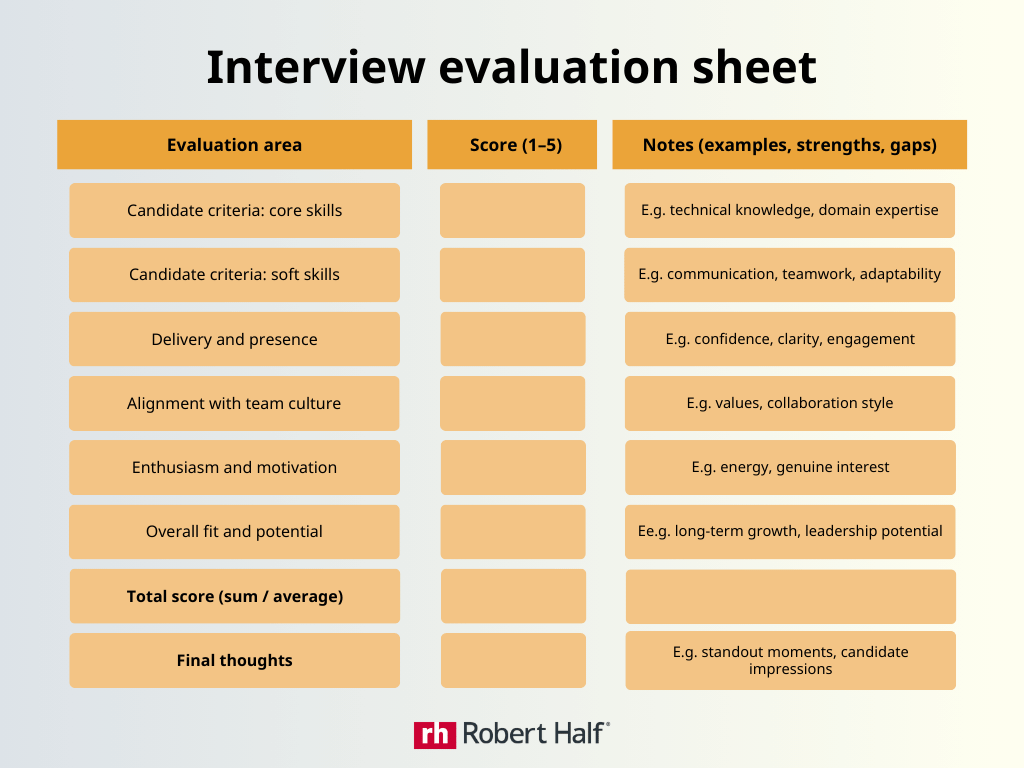Confidently hiring the right person feels great, and a little structure goes a long way in making sure you hire the best candidate.
In this article, we’ll explore how to assess a candidate’s response with purpose, giving you the tools to confidently assess and compare applicants.
From analysing an interview to using an effective interview evaluation sheet and a clear scoring system, these steps will help ensure your interview assessment is consistent, fair and effective. The goal is simple: to make it easier to hire the right candidate every time.
Why interview evaluation matters
When everyone on your hiring team agrees on the candidate criteria that matter most, the decision-making process becomes much more reliable. A structured evaluation process reduces the risk of bias, ensuring that every applicant is measured against the same benchmarks.
This consistency benefits both the interviewer and the candidate. For hiring managers, it creates a smoother, more transparent process. For candidates, it signals that you value their time, their effort and their potential contribution. A strong interview assessment ultimately sets you up to make better hiring decisions that lead to long-term success.








